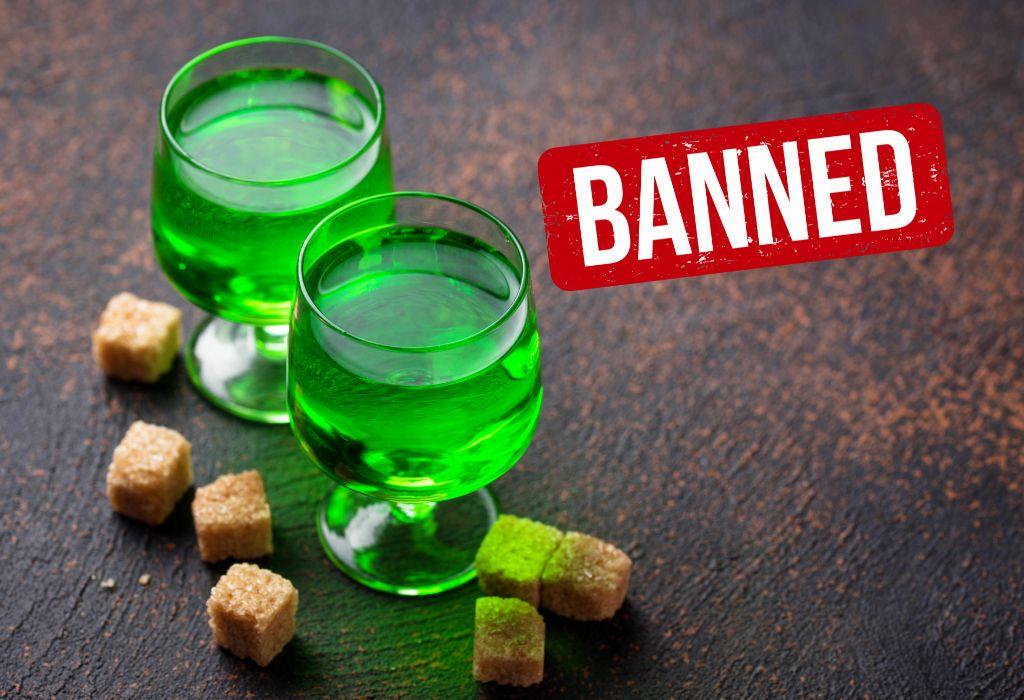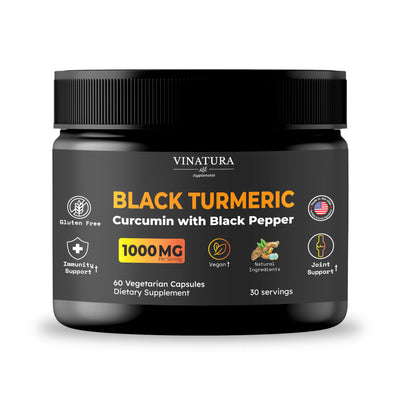
Why was Absinthe banned? Top 3 Facts about Absinthe
Absinthe, also known as “Green Fairy Wine,” is one of the most mysterious and controversial drinks in history. With a combination of herbs, especially wormwood, Absinthe is known to be extremely popular with artists and intellectuals. However, in the early 20th century, it was banned in many countries because it was believed to cause hallucinations and incite violent behavior. This gave Absinthe a mysterious image and danger. So why was Absinthe banned? Let's find out the truth surrounding this drink.
Before exploring further, please read the disclaimer located at the end of this webpage.
Key Takeaways
- Absinthe was banned in many countries in the early 20th century due to concerns about serious side effects, including hallucinations and agitation.
- Thujone, one of the main components of Absinth, is suspected of causing hallucinations and erratic behavior.
- Today, Absinthe is legal in many places but with strict limits on Thujone concentration.
What is Absinthe?

Absinthe is a strong, usually green, alcoholic beverage made from a variety of herbs, the most important of which is wormwood (Artemisia Absinthium). Absinthe is famous for its very high alcohol content, which can be as high as 70-75%. The drink is distilled from herbs such as fennel, star anise, and wormwood, giving it a unique and slightly spicy flavor.
Historically, Absinthe has been considered an inspiration for many famous artists and writers, such as Van Gogh and Oscar Wilde. They believed that this drink helped the imagination run wild and stimulated creativity.
Why Was Absinthe Banned?
Absinthe was banned in many countries in the late 19th and early 20th centuries due to concerns about its side effects. There were many reasons for the banning of Absinthe, but the main reason was the fear of Thujone.
Thujone is a compound found in wormwood, and it is believed that it can cause hallucinations, agitation, and even cause “Absinthism” – a disease believed to be associated with excessive Absinthe consumption with symptoms such as seizures, paranoia, and violent behaviour. [1]
Wormwood is an herbal plant belonging to the Asteraceae family, known scientifically as Artemisia Absinthium. This plant is famous in traditional medicine for its use in reducing a variety of diseases and is also a main ingredient in the drink Absinthe. Not only Artemisia Absinthium, another species of the Artemisia genus, Sweet Wormwood, is also widely used because of its ability to reduce malaria and anti-cancer effects.
In the late 19th century, the French government officially banned the production and consumption of Absinthe. This was followed by the Republic of Congo in 1898, Belgium in 1905, Switzerland and the Netherlands in 1910, the United States in 1912, and Italy in 1932.
Several famous cases in history, such as the Swiss man who murdered his entire family after drinking Absinthe or even Van Gogh's accidental cutting off of his ear, have fueled fears about the effects of the drink [2]. However, today's research has shown that the amount of Thujone in Absinthe is not enough to cause serious effects such as hallucinations or violent behaviour. [3]
Is Wormwood Illegal In The US?

Mugwort, the main ingredient in Absinthe, was banned in the United States due to concerns about Thujone. The flawed scientific studies of Dr. Valentin Magnan exaggerated Thujone's side effects. He forced laboratory animals to consume pure wormwood oil extracts and observed violent convulsions. This led him to conclude that Thujone caused hallucinations and deviant behavior in humans. He even concluded that the effects of Thujone could be passed on to the children of Absinthe consumers as a genetic disease. [2]
However, in 2007, Absinthe was re-legalized, provided that it complies with the safety limit for Thujone. According to the US Food and Drug Administration (FDA), the concentration of Thujone in Absinthe must not exceed 10 parts per million (ppm), which is a minimal amount, not enough to cause hallucinations or other behaviors.
Top 3 Facts about Absinthe
Absinthe Causes Hallucinations
One of the most common misconceptions about Absinthe is that it is hallucinogenic. This is due to the fact that Absinthe contains Thujone from wormwood. However, modern research has shown that the amount of Thujone in Absinthe is minimal and not enough to cause these effects. The changes in your body when drinking Absinthe may be due to the very high alcohol content, not the wormwood. [3]
Wormwood Illegality in the US

Mugwort was once illegal in the United States. However, since 2007, regulations on mugwort and Absinthe have been relaxed. Absinthe is allowed to be produced and sold in the United States, but only if the concentration of Thujone in the product does not exceed the permitted level. This ensures that the drink remains safe and does not pose any danger to users or cause other undesirable situations. [2]
Absinthe is Served with a Flaming Sugar Cube
One of the most famous ways to drink Absinthe is to use a burning sugar cube. This tradition originated in France in the late 19th century, when people used a special spoon to place a sugar cube on top of a glass of Absinthe and set it on fire, then dissolved the sugar in water. While this method of drinking is quite eye-catching and impressive, it actually only softens the bitterness of Absinthe and does not bring any noticeable side effects.
FAQs
Why is Absinthe Illegal if it's just another alcohol?
Absinthe was once banned not only because it was a strong drink but also because of concerns about Thujone causing hallucinations and psychological problems. Although Thujone can cause such harm, misunderstandings have led to the banning of Absinthe in the past.
Why was Absinthe banned and then unbanned?
Absinthe was banned in the early 20th century due to rumors that it caused hallucinations and violent behavior. However, modern research has shown that the amount of Thujone in Absinthe is not enough to cause these effects, leading to the drink being legalized again.
Is the unbanned version of Absinthe the real thing?
The current version of Absinthe still has the same main ingredients as in the past, including mugwort, fennel and star anise. But the difference is that the concentration of Thujone in Absinthe today has been thoroughly tested and limited to a safer level. So we can still enjoy Absinthe the way people did centuries ago, but without worrying about serious side effects.
Do people still drink Absinthe?
Although Absinthe is no longer as famous as it once was, it is still a popular drink in many countries, especially among connoisseurs and art lovers. Today, Absinthe is also enjoyed more for the purpose of exploring history and culture.
Conclusion
Absinthe was once banned due to misconceptions about its side effects. But thanks to scientific research, the drink has been cleared and legalized again. Although there are still some concerns about the Thujone ingredient, with strict regulations today, Absinthe has become increasingly safe while still retaining its inherent appeal.
References
- [1] Lachenmeier, D. W., Emmert, J., Kuballa, T., & Sartor, G. (2006). Thujone—Cause of absinthism? Forensic Science International, 158(1), 1–8. https://doi.org/10.1016/j.forsciint.2005.04.010
- [2] Lux, Erowid F. "The Absinthe Enigma; Resurgence of a Legendary Spirit". Erowid Extracts. Nov 2007;(13):12-14. https://www.erowid.org/chemicals/absinthe/absinthe_writings4.shtml
- [3] Padosch, S. A., Lachenmeier, D. W., & Kröner, L. U. (2006). Absinthism: a fictitious 19th century syndrome with present impact. Substance Abuse Treatment, Prevention, and Policy, 1(1), 14. https://doi.org/10.1186/1747-597x-1-14
Author

Product Disclaimer
Including an ingredient or study does not evaluate, endorse, or recommend any Vinatura product or any third-party product. Some ingredients discussed may not be used in any Vinatura product.
The content of the articles has not been evaluated by the Food and Drug Administration (FDA) and is not intended to promote or endorse any specific product. Any products sold on this website are not intended to diagnose, treat, cure, or prevent any disease.
Opinions and Endorsements
Any claims, statements, or opinions expressed in the articles are those of the author(s) and do not necessarily reflect the views or opinions of the manufacturers of the dietary supplement products. The products sold on this website are separate from the content of the articles and are not directly endorsed or associated with the information presented here.
Liability Disclaimer
The author(s) of the articles, website, and manufacturers of the dietary supplement products do not assume any liability for any potential consequences arising from the use of the information provided in the articles. Ingredient effects, dosages, and safety vary by individual, formulation, and context; some ingredients interact with medications or may be unsuitable during pregnancy or lactation. It is recommended that individuals consult with a qualified healthcare professional before making any dietary or lifestyle changes, including the use of dietary supplements.
Product Usage
Please refer to the product labels and packaging for specific usage instructions and guidelines for the dietary supplement products sold on this website.
Customer Support
For any concerns or questions regarding the dietary supplement products, please contact our customer support team, who will be more than happy to assist you.





Leave a Comment
Be the first to comment.
What do you think?